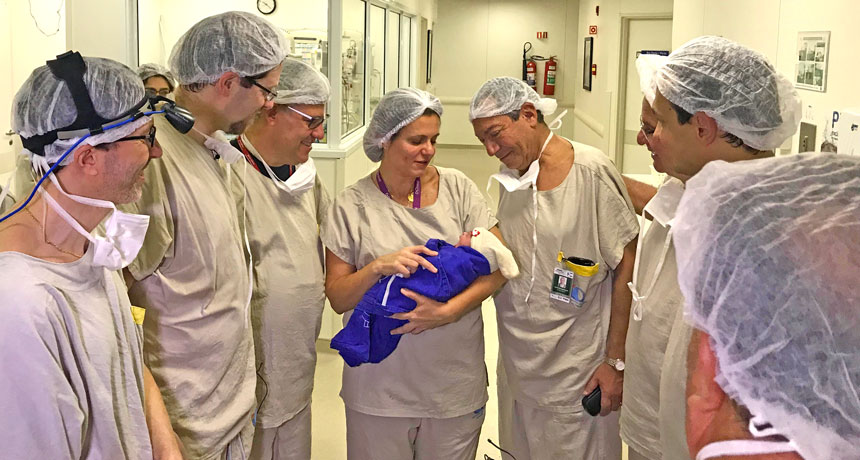In a first, a woman with a uterus transplanted from a deceased donor gives birth
The healthy baby girl celebrates her first birthday this month

HAPPY BIRTHDAY This baby girl, shown shortly after birth with her doctors in Brazil, is a medical first. Her mom is the first woman to give birth with the help of a uterus transplanted from a deceased donor.
Hospital das Clínicas da Faculdade de Medicina da USP







